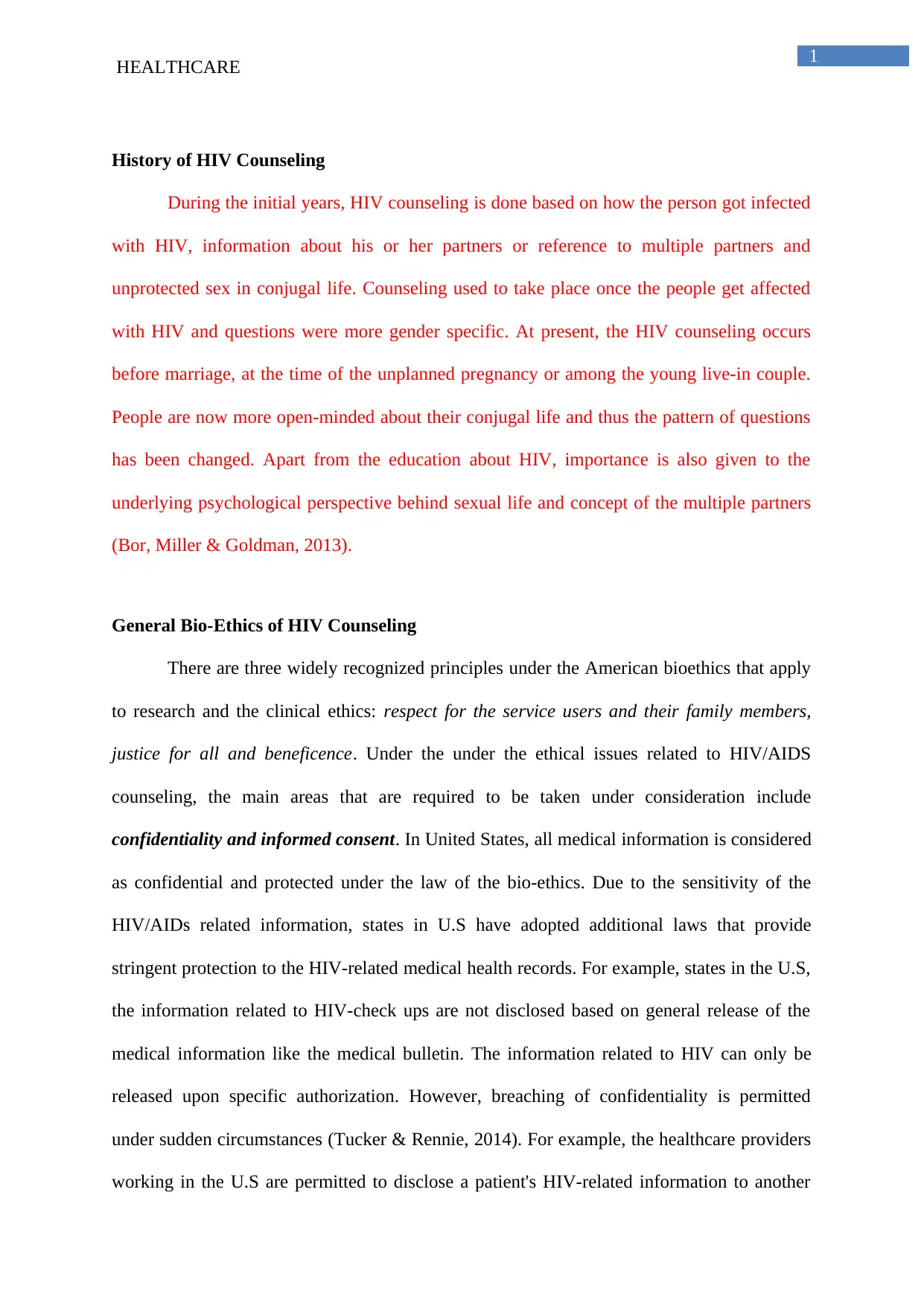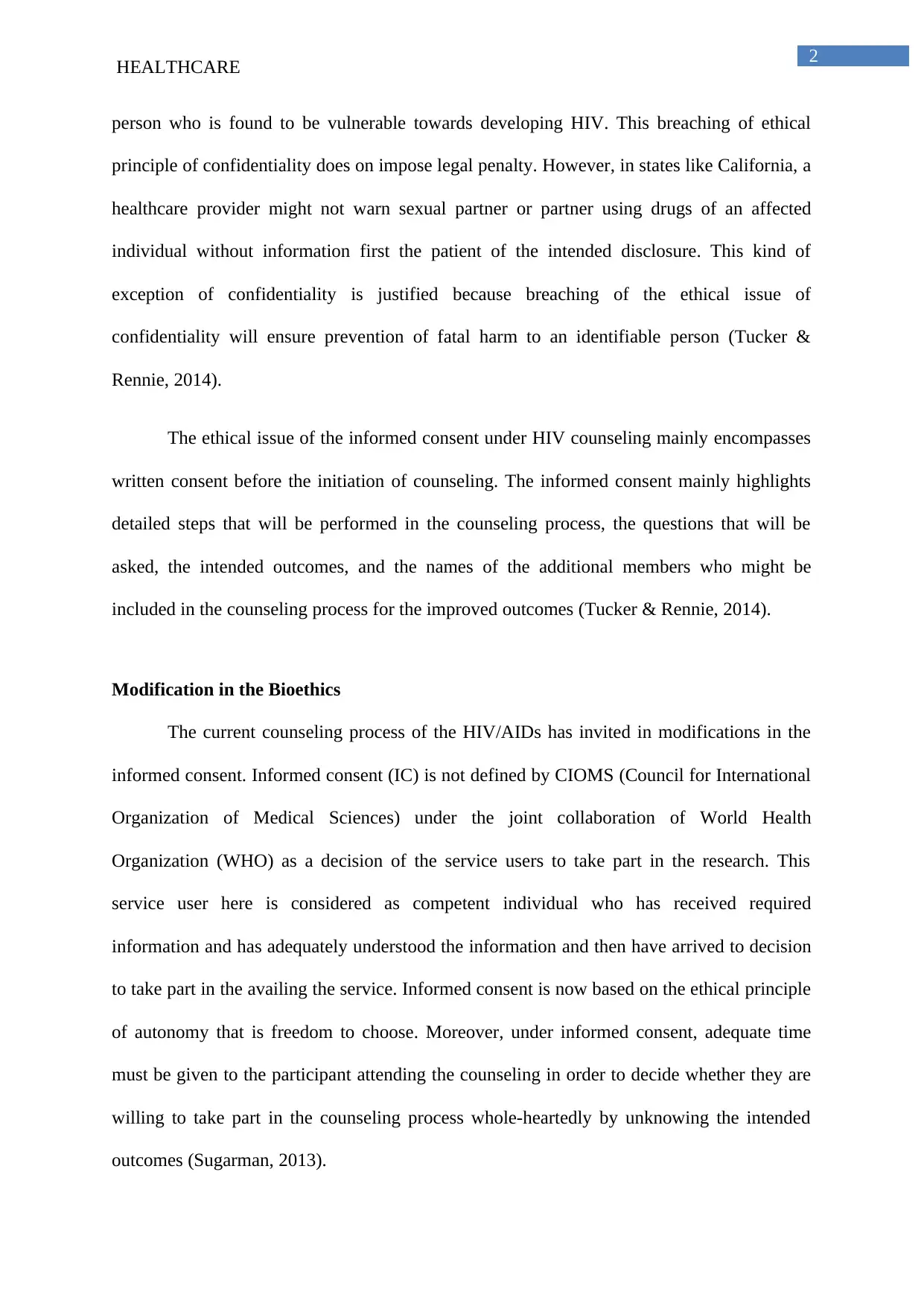Healthcare Ethics: History and Evolution of HIV Counseling Bioethics
VerifiedAdded on 2023/04/26
|5
|929
|137
Essay
AI Summary
This essay provides an overview of the history and bioethics of HIV counseling, tracing its evolution from early gender-specific approaches to contemporary practices emphasizing psychological perspectives and open communication about sexual health. It examines the core bioethical principles of respect, justice, and beneficence, focusing on the critical issues of confidentiality and informed consent within HIV/AIDS counseling. The essay highlights modifications in informed consent, emphasizing autonomy and the right to choose, while also addressing ethical factors such as beneficence and nonmalfeasance. Furthermore, it discusses the complexities of mandatory HIV counseling for pregnant women and newborns, including instances where ethical obligations like informed consent may be breached. This document is available on Desklib, a platform offering a wide range of study tools and solved assignments for students.
1 out of 5









![[object Object]](/_next/static/media/star-bottom.7253800d.svg)